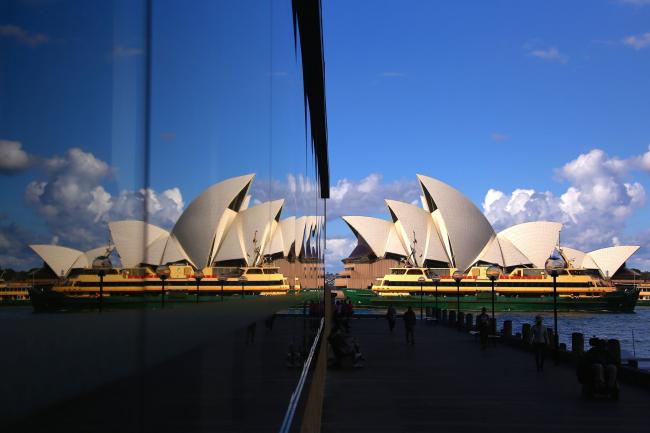(Bloomberg) -- Australia’s central bank is ready to cut interest-rates further if a buildup of evidence suggests this would boost the economy, and said it reviewed global experience with unconventional steps when policy makers met two weeks ago.
The Reserve Bank noted few signs of inflation pressures emerging in the economy and warned entrenched expectations of weak wage growth could crimp household spending, according to minutes of its Aug. 6 meeting. Yet it reaffirmed a better growth outlook based on the combination of June-July easing, tax cuts and infrastructure spending providing increased momentum.
“The board judged it appropriate to assess developments in the global and domestic economies before considering further change to the setting of monetary policy,” the RBA said in Sydney Tuesday. “Members would consider a further easing of monetary policy if the accumulation of additional evidence suggests this was needed to support sustainable growth.”
RBA chief Philip Lowe has only 1 percentage point of rate ammunition left, prompting economists to speculate on him having to follow Northern Hemisphere counterparts in adopting unconventional policies. The minutes showed policy makers “reviewed the experience” of such measures in other advanced policies over the past decade.
These included:
- Very low and negative policy rates;
- Explicit forward guidance;
- Lowering long-term risk-free rates by purchasing government securities;
- Providing long-term funding to banks to support credit creation;
- Purchasing private sector assets; and
- Foreign exchange intervention
It also said “a full evaluation could not be undertaken as many of these measures were yet to be unwound.”
On the international front, the RBA noted growth in India looked weaker due to less fiscal support and trade tensions with the U.S. emerging. It also highlighted the likelihood of further global easing in response to weaker growth and inflation.
The board also took note of “market commentary that the U.S. and Japanese authorities could intervene in an effort to lower the value of their currencies.” It added that Australia’s dollar was at its lowest level “in many years.”
The bank sounded downbeat on the prospects for inflation at home, saying second-quarter CPI showed “few signs” of pressures building.
“Members judged it reasonable to expect that an extended period of low interest rates would be required in Australia to make sustained progress towards full employment and achieve more assured progress towards the inflation target,” the RBA said.
